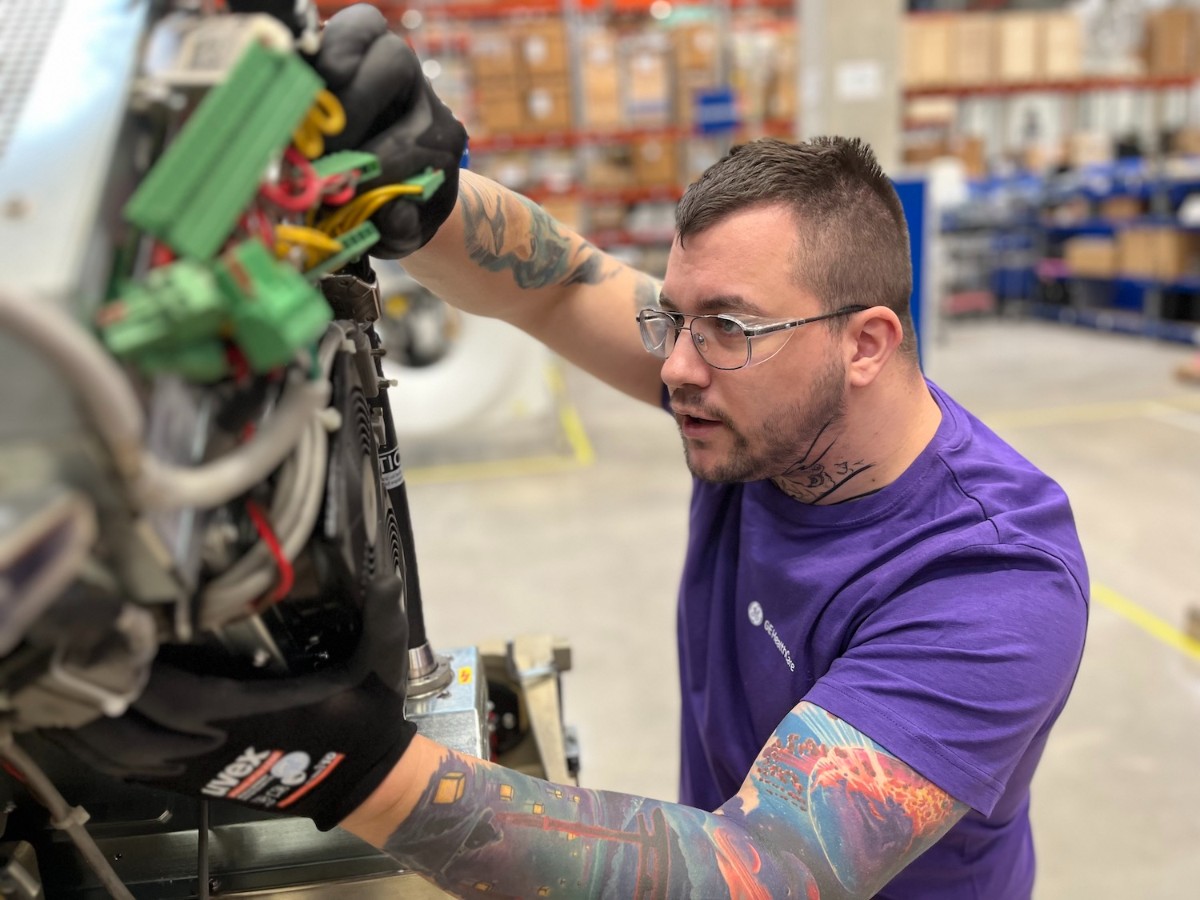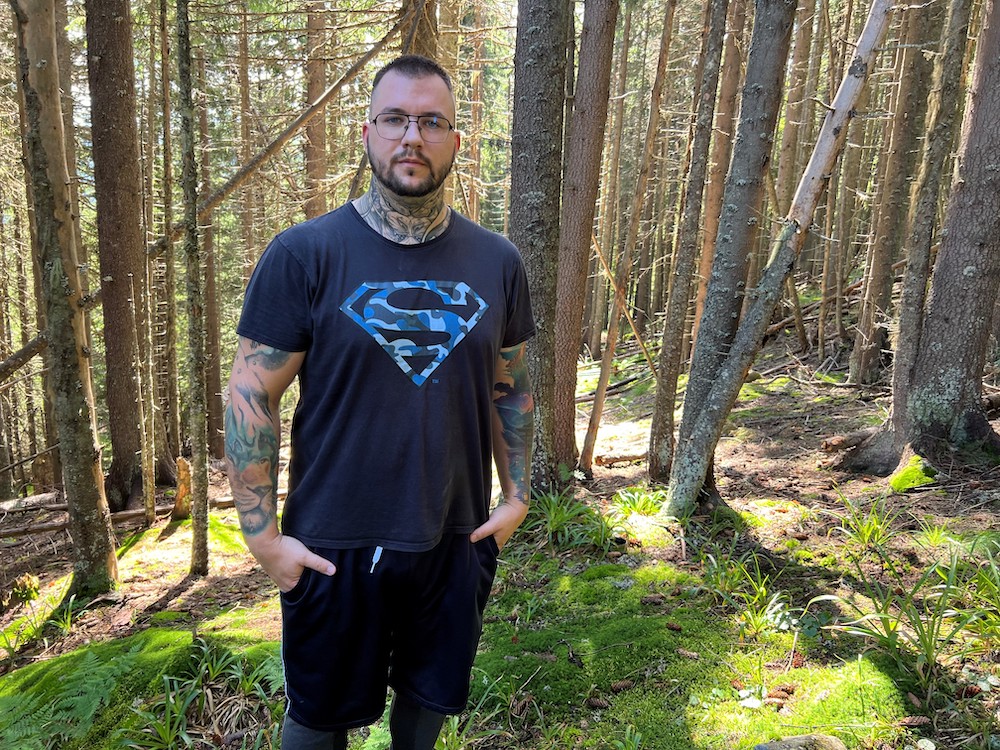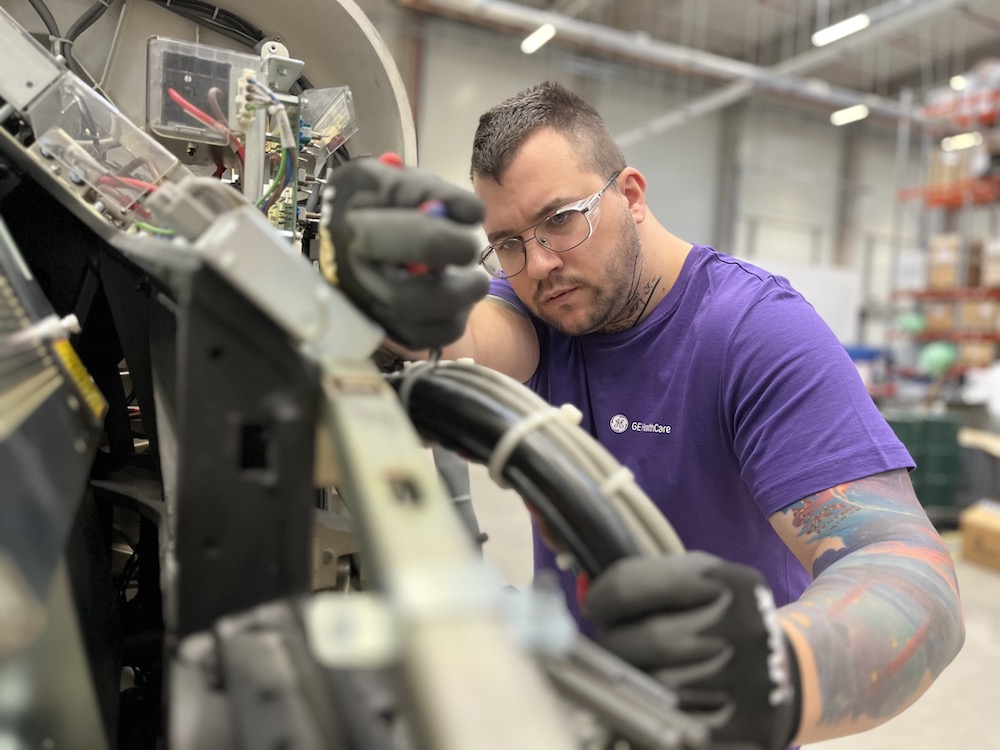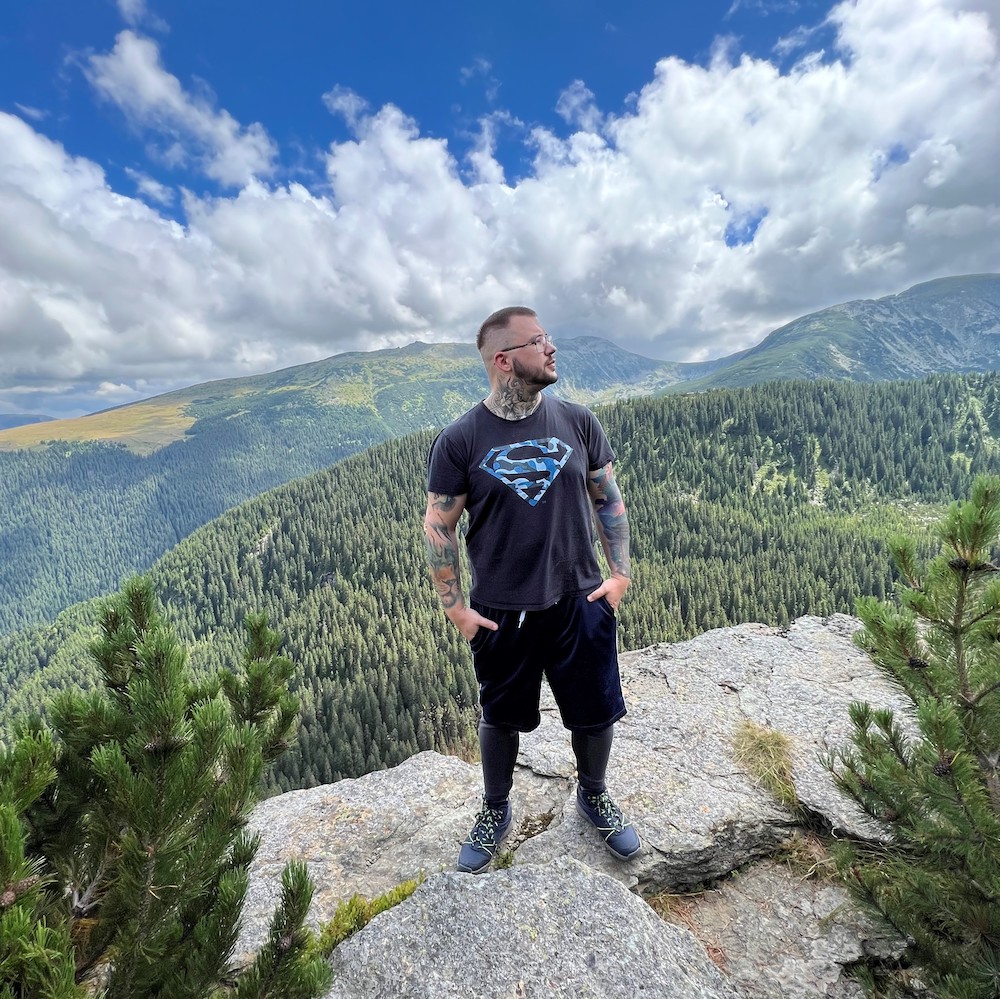Throughout most of his childhood in Tinnye, close to Budapest, Hungary, Barnabás Urbanics considered himself an overall healthy person. As he got older, he started to notice that he sometimes seemed to have less physical endurance than other kids his age; he would get tired more easily and when he exercised, his heart would beat very fast.
But he didn’t think much about it until one sunny afternoon in 2016, when he was 21 years old. He was playing football at school with some of his classmates when suddenly he felt a pain in his chest. It was like nothing he’d ever felt before. “It was like someone had put a huge weight on my chest,” he recalls.
Barnabás immediately left the pitch, and the pain disappeared as suddenly as it had come. He decided he didn’t need his teacher to call an ambulance. Maybe, he thought, he’d just overstrained himself or he was feeling the effects of the heat. But he was still shocked by how weak he had felt.
His parents, however, decided he needed to see a doctor right away. And sure enough, even though the chest pain was gone, his blood pressure was still abnormally high: 180/110. His GP wasn’t sure why, though, and sent him to Szent Margit Medical Center for further examination. An ultrasound revealed that Barnabás had a condition called tricuspid valve regurgitation.
Tricuspid valve regurgitation occurs when the valve between the right ventricle and the right atrium, the two chambers on the right side of the heart, doesn’t close properly. As a result, blood leaks backward into the atrium and the heart has to work harder to keep the blood moving to the lungs. In Barnabás’s case, the condition was a congenital birth defect, the result of the valve not developing properly in utero. If left untreated, it could develop into heart failure.
Barnabás’s initial reaction to the diagnosis was relief. “It explained why I couldn’t participate more actively in sports,” he says, “and why I got so tired so quickly.”
He was also relieved that he wouldn’t need surgery. Instead, the cardiologists said he should be able to live with the condition as long as he took his medications, maintained a healthy weight, refrained from any exercise that would increase his adrenaline level, and saw his doctor for regular checkups.
When he left school, Barnabás initially trained as a cook, but he was always fascinated by technology, specifically equipment of all kinds and how it’s built and functions. A friend happened to be working at GE HealthCare, and before long Barnabás found a job there, too, as a technician at the European Repair, Harvest, and Gold Seal Center in Páty, Hungary, just outside Budapest. His job is to extract parts from used MR, CT, and mammography equipment so they can be recycled and used in repairs.
Although he has no direct contact with patients, he believes that his work with the machines will ultimately help other people lead better, healthier lives. “As a person participating in regular health examinations,” he says, “I know exactly how important it is to bring medical devices back to service quickly so that patients don’t have to wait long for a health check.”
As it happened, before he came to work at GE HealthCare, Barnabás himself was one of the patients who benefited from promptly repaired equipment: He distinctly remembers seeing the GE logo on the ultrasound machine during his first visit to Szent Margit’s, when he was 21.
Today, Barnabás is able to keep his condition under control through a regimen of medication (including 5 milligrams of Covercard and 5 milligrams of Sandoz Bisoprolol), light exercise, and regular checkups. And whenever he’s examined by a GE HealthCare ultrasound machine, he feels a sense of pride, not just because he knows that the results will be accurate and reliable, but also because his own contributions help doctors give their patients quick and accurate diagnoses, just like his doctor did seven years ago.
“When I joined GE HealthCare, I found myself in a completely new world,” he says. “I felt for the very first time that the company is not only important for me but that my work is also important for the company. I know my job is important, and doing my everyday job is not exhausting, as I feel the same joy you experience with volunteerism.”




